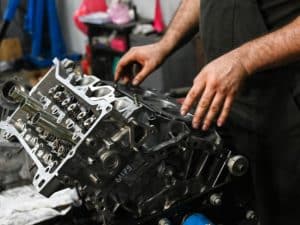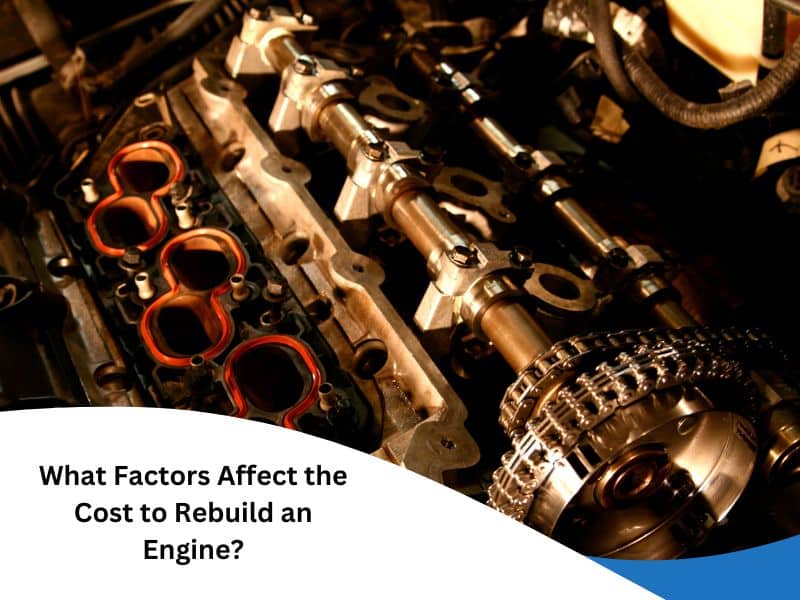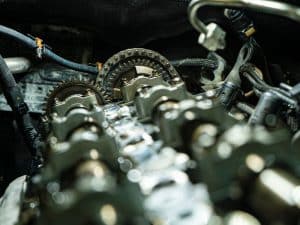Rebuilding an engine can be a cost-effective way to extend the life of your vehicle. Still, the cost of rebuilding an engine can vary significantly. Understanding the factors influencing this cost can help you make informed decisions regarding engine reconditioning. Whether you’re dealing with a worn-out engine or looking to restore the power and efficiency of your vehicle, several key aspects play a role in determining the overall cost of the rebuild. This article will explore the factors that affect engine rebuild costs so you can better understand what to expect and why certain decisions can influence the final price.
What are the key factors that influence the cost of an engine rebuild?
Rebuilding an engine isn’t a one-size-fits-all solution, and several elements play a role in how much you’ll end up spending. The cost to rebuild an engine can fluctuate based on:
- Engine condition: How worn out or damaged the engine is will heavily influence the cost. The more severe the damage, the more extensive the repairs needed.
- Labour costs: The expertise and time required to complete the rebuild will contribute significantly to the overall cost.
- Parts quality: The price difference between high-quality original parts and aftermarket options can be substantial.
- The complexity of the rebuild: Some engines are more complicated than others, which could increase the time and effort needed.
- Location: Engine rebuild costs can vary depending on where you live and the shop’s reputation and experience.
Each of these factors will affect the cost differently, and understanding them can help you plan for your engine rebuild more effectively.
How does engine condition impact the cost of rebuilding engine?
The condition of your engine before you begin the rebuild process can significantly impact the cost. Here’s how:
- Heavy wear and tear: If your engine has endured years of hard use, excessive wear can make the rebuild more costly. Damaged components will need replacing, which requires more time and materials.
- Previous repairs: If your engine has already been repaired or modified in the past, additional work may be needed to restore it to a reliable condition.
- Corrosion and rust: Engines exposed to water or moisture can suffer from corrosion, increasing the rebuilding cost. Parts such as pistons, cylinder heads, and bearings may need to be replaced or reconditioned.
Essentially, the worse the engine’s condition, the higher the cost to rebuild it.
Why do labour costs vary for engine rebuilds?
Labour costs are a significant portion of the cost of rebuilding an engine, and they can vary widely based on several factors:
- Expertise of technicians: Highly trained technicians with a deep understanding of engine rebuilding may charge more initially. However, their expertise ensures a quality rebuild, potentially saving money by preventing future problems.
- Time involved: The amount of time it takes to complete the rebuild is another factor that affects labour costs. More complex rebuilds take longer, leading to higher labour costs.
- Location: Where you’re located can also influence labour rates. In areas with a higher cost of living, you may find that repair services charge more for their time.

Considering the balance between cost and expertise is essential when evaluating labour costs for an engine rebuild.
What role do high-quality parts play in the total cost?
The quality of parts used during the rebuild process can significantly impact the cost and the long-term reliability and performance of the engine. Here’s what you should know:
- Genuine OEM parts: Original Equipment Manufacturer (OEM) parts are designed specifically for your vehicle and tend to offer the best performance and longevity. Although they can be more expensive, they can help maintain your engine’s reliability.
- Aftermarket parts are often cheaper than OEM parts, but their quality can vary. Some perform just as well as OEM parts, but others may have a shorter lifespan, potentially leading to more frequent repairs.
- Reconditioned parts: Sometimes, you can opt for reconditioned or refurbished parts. These parts are often less expensive than brand-new ones. However, depending on the quality of the reconditioning process, they can still perform well.
Using high-quality parts can raise the cost of an engine rebuild. Still, it can also lead to better performance and fewer repairs later.
Why does engine complexity affect the cost to rebuild engine?
The complexity of your engine is another major factor that influences the cost of rebuilding an engine. More complex engines with intricate components require specialised knowledge and tools, which can increase both labour and material costs. Here’s why:
- Engine type: Some engine types, such as turbocharged or hybrid engines, are more complicated to rebuild than standard engines. These engines often require additional expertise and time to work on.
- Precision work: Complex engines require more precise measurements and adjustments, which can take longer. The more intricate the rebuild, the higher the cost.
- Specialised tools: Some engines require specialised tools or diagnostic equipment, which can add to the rebuild cost.
Essentially, the more complicated the engine, the more expensive the rebuild process will be due to the added expertise and time required.
What parts are typically replaced during an engine rebuild?
During a typical engine rebuild, several parts may be replaced or reconditioned to restore the engine to its original performance. Typical parts that are typically replaced include:
- Pistons and rings: These components are critical for compression and can wear out over time.
- Cylinder heads: If the cylinder heads are cracked or warped, they may need to be replaced or resurfaced.
- Bearings and bushings: These parts experience a lot of friction and can wear out over time.
- Valves: Worn-out valves can lead to engine misfires, so they may need replacing or reconditioning.
- Timing chains or belts: These components control the engine’s timing and must be in good condition to avoid engine failure.
Replacing or reconditioning these parts is essential to ensure the rebuild is successful and the engine runs efficiently.
How can a proper engine inspection reduce the cost of rebuilding an engine?
A thorough engine inspection can reduce rebuilding costs by identifying issues early on. Here’s how:
- Accurate inspection: To ensure a precise cost estimate, get a proper estimate identifying which parts need replacing and which can be salvaged.
- Early problem detection: Identifying issues like worn bearings, cracked heads, or failing seals early can prevent further damage during the rebuild process.
- Avoiding surprises: Addressing potential problems before the rebuild can prevent later surprise costs.
Investing in a proper engine inspection can prevent unexpected costs and ensure the rebuild process goes smoothly.
Is rebuilding cheaper than replacing the engine?
Rebuilding an engine is often cheaper than replacing it with a brand-new one. However, the cost to rebuild the engine depends on the damage’s severity, the rebuild’s quality, and the potential benefits of engine rebuild, such as enhanced performance and longevity. Here are a few points to consider:
- Cost of parts: Rebuilding your engine typically involves using your existing parts and replacing or reconditioning some components. This is generally cheaper than buying a brand-new engine.
- Labour costs: The labour involved in rebuilding an engine can be less than replacing the entire engine, but it can still be substantial depending on the job’s complexity.
- Longevity: A well-rebuilt engine can last just as long as a new one, provided skilled professionals do it.
In general, rebuilding is cost-effective, significantly if your engine can be restored to good condition.
Making the right choice for your engine
The cost of rebuilding the engine can vary depending on several factors, such as the engine’s condition, the parts used, the complexity of the rebuild, and the mechanics’ expertise. However, by understanding these factors and making informed decisions, you can reduce the overall cost of an engine rebuild while ensuring your vehicle runs smoothly for years with the expertise of an experienced Hyundai iLoad mechanic.
Suppose you’re a Hyundai iLoad owner in Victoria and need expert engine sales, reconditioning, or repair services. In that case, Hyundai iLoad Engine Specialist offers high-quality Hyundai iLoad engine repairs, rebuilds, and supply services with a 6-month or 20,000 km warranty backed by over 30 years of mechanical expertise. Whether you need fast, reliable engine repairs or a complete replacement, we’re here with 24-hour urgent service. Trust us to supply, fit, and tune your engine with precision and care. Contact Hyundai iLoad Engine Specialist today.
Frequently Asked Questions
- How long does an engine rebuild take?
The duration depends on the complexity of the engine and the extent of repairs. Still, it can take anywhere from a few days to weeks. - Can any mechanic rebuild an engine?
Not all mechanics specialise in engine rebuilds. Choosing an experienced professional with expertise in your engine type is best. - Is an engine rebuild worth it for an older vehicle?
It depends on the car’s overall condition and whether rebuilding the engine or vehicle is more cost-effective than replacing it. - Do I need to break into a rebuilt engine?
Yes, a rebuilt engine requires a break-in period to ensure proper lubrication and wear-in of new components. - Will my rebuilt engine have the same performance as a new one?
An adequately rebuilt engine can restore or even improve performance, depending on the quality of parts and workmanship. - Does an engine rebuild come with a warranty?
Many professional rebuilders offer warranties, but coverage varies. Always ask about warranty terms before proceeding. - What’s the difference between an engine rebuild and an engine overhaul?
A rebuild typically involves replacing worn parts, while an overhaul is a more extensive process that may include machining and restoring the entire engine. - Can I drive generally after an engine rebuild?
Follow recommended break-in procedures for the first few thousand kilometres, such as avoiding high RPMs and heavy loads. - How can I maintain my rebuilt engine for longevity?
Regular oil changes, using quality fuel, and following the manufacturer’s maintenance schedule will help extend the life of a rebuilt engine. - What are signs that my engine needs a rebuild?
Symptoms include excessive smoke, knocking noises, loss of power, and high oil consumption. A professional inspection can confirm the issue.


